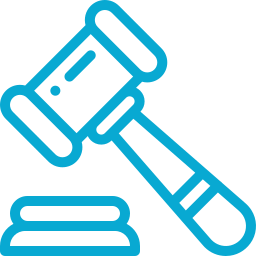Our team provides specialized services for loan settlement, ensuring a hassle-free and secure process. We handle negotiations, documentation, and legal formalities to help you settle your loans efficiently.

Connect with our financial advisor to discuss your loans and EMIs and check your eligibility for loan Settlement, and take the first step towards becoming debt-free.
Our Financial Advisor will conduct an evaluation of your income and debt status to determine your eligibility for a settled loan program that is best suited to your unique needs.
Connect with our financial advisor to discuss your loans and EMIs and check your eligibility for loan Settlement, and take the first step towards becoming debt-free.

In this process, we aim to negotiate the best possible Settlement plan with the creditor(s) and repay the Settlement amount, which is a more feasible amount than the total amount owed.
Book Consultation Now
Credit card debt incurs a higher interest rate and additional fees, making it challenging to repay the debt. These extra interest charges contribute to an escalation of the debt amount, in addition to causing financial strain. Furthermore, it impedes one's capacity to save and invest the available funds.
Book Consultation Now
Home loan Settlement occurs when the borrower and lender reach an agreement to pay off the remaining loan balance. This typically happens in situations where the borrower is unable to keep up with the loan payments. In some rare cases, lenders may even offer financial incentives to borrowers who opt to settle their debt.
Book Consultation Now
The vehicle loan Settlement is the amount required to pay off an existing vehicle loan fully. Often used interchangeably with "payoff amount," vehicle loan Settlement is typically presented as time-sensitive quotations that can fluctuate from one day to the next.
Book Consultation Now
Education loan Settlement refers to engaging in negotiations with a lending institution to arrive at mutually agreed-upon terms for repayment of an education loan. In situations where borrowers are experiencing financial hardship and cannot fulfil their loan obligations, they may consider exploring the option of loan Settlement to resolve their outstanding debt.
Book Consultation Now
Harassment by recovery agents is quite common in India, despite several Supreme Court judgments and RBI guidelines prohibiting harassment of borrowers. Our Anti-harassment Strategy is available to assist in such situations. Please read on to learn more about how we can help.
Book Consultation Now
Improving credit score is not an overnight task. As part of the process, we will provide you with the support of a senior credit counsellor who will guide you through a period of 3-6 months or longer if necessary. Their expertise will help you make informed decisions and implement effective strategies to improve your credit score gradually.
Book Consultation Now
with our settleloan program you can save a lot on your total outstanding debt, including paying our fees you can save some of the outstanding debt that you owed from the lenders.

It takes an average of 24 months for our customers to become free from debt trap which they cannot pay even in 5 yrs. Our Settlement program is the fastest process to become debt-free.

Our Settlement program will also help you to live a stress-free life as you can forward all your lender’s calls to our team to handle all harassment calls.

Our experienced property lawyers provide end-to-end legal assistance in property registration, ensuring a smooth and hassle-free process.

First-time buyers are at high risk of fraud. We help in detecting forged documents, disputed ownership, and unauthorized sales.

We handle all interactions with Sub-Registrar Offices, Revenue Departments, and other authorities, ensuring quick and lawful registration.

If the property has any pending disputes, encumbrances, or third-party claims, we provide expert legal assistance to resolve them.

Our client-centric approach ensures honest advice, timely execution, and complete transparency throughout the process.
A: No. Loan closure happens after full repayment, while loan settlement involves a compromise on the outstanding amount.
A: When facing severe financial hardship like job loss, health issues, or business failure, and unable to repay the loan in full.
A: Yes, it negatively impacts your credit score as it’s reported as “settled” instead of “closed.”
A: Yes, if proper documentation isn’t executed, banks may pursue legal action. Legal assistance ensures protection.
A: Loan agreement, ID proof, bank statements, notice copies, correspondence with the lender, and income proof.
A: Yes, to ensure proper negotiation, legal documentation, and protection from future liabilities.
A: A written agreement from the lender acknowledging the mutually agreed settlement amount and confirming no future claims.
A: Harassment is illegal. KHA ADVOCATES helps protect your rights and take legal action if required.
A: It is a certificate issued by the lender confirming full and final settlement of dues.
A: It’s a criminal offense. We help file police complaints or court cases against such conduct.
A: If a proper settlement is not documented, yes. Legal guidance ensures settlement is final and enforceable.
A: Yes. We provide stay orders, file objections, and negotiate legally.
A: Yes, we appear before DRT, DRAT, consumer forums, civil courts, and High Courts.
A: We can help challenge it legally and explore negotiated settlement options.
A: Yes, we guide in applying for OTS and negotiating with banks/NBFCs.
A: Yes, through legal negotiation and representation.
A: Yes, we evaluate restructuring, deferment, or moratorium options.
A: Yes, but proper documentation and lawyer verification are essential.
A: Yes, we specialize in representing NRIs and foreign clients remotely and in court.
A: Yes, we handle cases involving NBFCs, digital lenders, and unregulated fintech apps.
